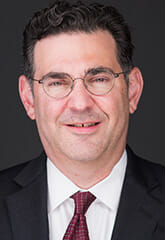
Healthcare workers may seek a medical or religious exemption under the new emergency federal COVID-19 vaccination mandate, but a test opt-out does not exist, a top Centers for Medicare & Medicaid Services official told McKnight’s on Thursday.
This is in contrast to a separate vaccination mandate for employers of 100 or more from the Occupational Safety and Health Administration, which was issued in tandem with the healthcare facilities rule early Thursday morning. The OSHA regulation governs some 84 million workers, while the new CMS condition of participation will pertain to 17 million healthcare workers.
The compliance deadline is Jan. 4 for both new rules.
“We felt that based on the best evidence, based upon CDC guidance, based upon the fact that rules that govern healthcare workers that interact with patients … we felt that the best policy driven by evidence, driven by CDC guidance, is to require healthcare workers to be fully vaccinated, rather than have that testing option,” explained CMS principal deputy administrator and COO Jonathan Blum.
Testing will not be allowed to be a proxy for vaccinations even if outside funding were found for the former, he added.
“We are not providing funding for any decisions that would permit testing. These rules really govern how facilities need to ensure that their workers are fully vaccinated,” Blum explained. “They [providers] have to set up processes to permit those exemptions. But we are not providing funding for testing.”

He told McKnight’s that more guidance would be issued “soon” on the survey process that will gauge staff vaccination compliance and whether anything less than 100% would ever be permitted.
“There is a range of penalties (and) processes as surveyors do their work,” Blum explained. “So they will survey, they will assess the overall compliance. Those providers who are deemed not to be in compliance will be given a chance to correct. Certainly the totality of the so-called violation will be considered. But termination [from the Medicaid or Medicare programs] really is the last resort. We have no interest to see facility terminations.”
It will be up to providers themselves to figure out how to compel individual workers’ compliance or otherwise remove non-vaccinated employees, he noted. The agency will focus on the big picture.
“We’re not going to be shy where we see blatant noncompliance, but at the same time our history shows — and the process was built and will follow this — that there will be a range of corrective actions, of different remedies,” Blum said. “But the expectation is that all healthcare workers that don’t have exemptions are fully vaccinated.”
Protests and legal challenges by state governments and others to the worker vaccine mandates are expected. In the meantime, Blum reminded that state authorities cannot preempt federal law for Medicare and Medicaid purposes.
Some 76,000 healthcare providers, including about 15,000 nursing homes, will be governed by the new CMS vaccination condition of participation.




